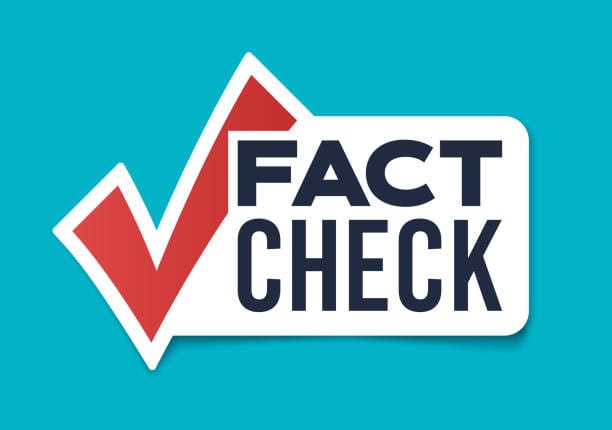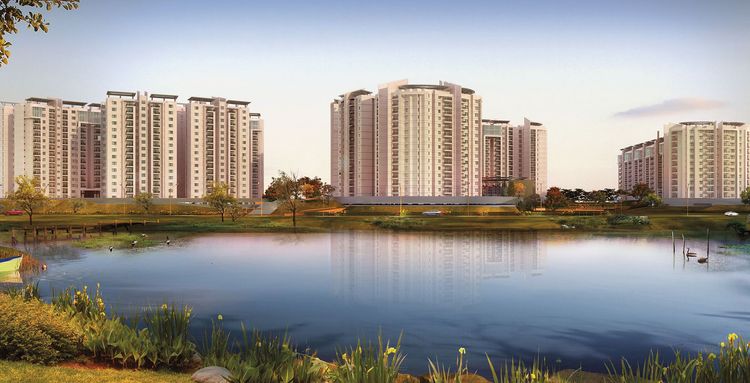Real Estate Myths for NRIs: You’ve been away from your roots for years—maybe decades. The place that raised you, shaped your childhood memories and where your heart still resides. Yet, the dream of owning a property there—something that ties you to the city more permanently, keeps pulling you back. As you start researching, suddenly, everyone around you is an expert: “Bangalore’s real estate is overpriced”, “Be careful, the property market there is like a game of snakes and ladders.”
You’re left wondering: Is Bangalore’s property market truly a minefield or is it just a bunch of overhyped myths? Will I need to empty my bank account just to own a piece of this city?
And…a lot more!
Look people, I get it. The idea of investing in a property halfway across the world can feel like trying to solve a Rubik’s cube blindfolded. But don’t worry, we’ve got you covered. In this blog, we’ve picked the top misconceptions that keep NRIs on the fence about investing in Bangalore.
This is Part 1 of our exploration into real estate myths for NRIs. Stay tuned for Part 2, where we dive deeper into more about pre-launch projects and popular strategies for NRIs to invest in Bangalore real estate market.
So, are you ready to dive in?
Let's get started!
Myth 1: Property Taxes for NRIs are Higher Than for Indian Residents
Property Taxes for NRIs | Propsoch
Debunked Myth for NRI Investors: Property tax rates for NRI investors in Bangalore are higher or not?
This is perhaps the most prevalent myth that discourages NRIs from investing in Bangalore. The truth is that the Bruhat Bengaluru Mahanagara Palike (BBMP), the city's municipal corporation, applies the same property tax rates for everyone, irrespective of their residency status. Your residency status, whether you're an NRI or an Indian resident, has no bearing on the property tax you pay.
Property Tax Rates in Bangalore
To illustrate this point, let's look at the property tax rates for residential properties in different zones of Bangalore:
As you can see, the tax rates remain consistent across all zones for both residents and NRIs. Zone A, generally considered to have prime locations, has the highest rates while Zone F has the lowest. However, it's important to remember that specific rates can vary based on other factors like property usage and age.
The table also highlights a key difference in tax rates: self-occupied properties have significantly lower rates than rented ones. This is an important consideration for NRIs who might not reside in their Bangalore property full-time.
Tax Calculation
Let's say you own a 1,500 sq ft residential property in Zone C, and it's self-occupied. Assuming the property is new and no depreciation applies, the calculation would be:
- Property Size: 1,500 sq ft (self-occupied)
- Tax for Living Area: ₹1.80 per sq ft x 1,500 sq ft x 10 months = ₹27,000
- Parking Area: 100 sq ft, tax at ₹0.30 per sq ft = ₹3,000
- Total Taxable Value: ₹27,000 (living area) + ₹3,000 (parking) = ₹30,000
- Property Tax: 20% of ₹30,000 = ₹6,000 + 24% of ₹6,000 = ₹1,440
- Total Property Tax: ₹6,000 + ₹1,440 = ₹7,440
This example illustrates how the tax is calculated based on the property's specifics, not the owner's residency status.
For more information related the same, you can refer to the BBMP’s official website.
Factors Influencing Property Tax

While residency status is not a factor, several other elements influence property tax calculations:
- Zone: Bangalore is divided into six zones (A to F), each with different tax rates.
- Usage: Residential properties generally have lower tax rates than commercial properties.
- Occupancy: Self-occupied properties have lower tax rates than rented ones.
- Property Age and Depreciation: Older properties may be eligible for depreciation, which can reduce the tax amount.
- Property Size and Value: Larger and more valuable properties naturally attract higher taxes due to their higher Gross Unit Area Value (GAV).
To know more about the Bangalore real estate market, you can read here.
Myth 2: Renting Out Property in Bangalore is Difficult for NRIs

Debunked Myth for NRI Investors: Dear readers, finding tenants in Bangalore is not at all like searching for a parking spot on a busy weekend!
An NRI friend of mine, based in Dubai, rented out his apartment in Bangalore with the assistance of a property management company. The company took care of tenant management, rent collection, and property maintenance, allowing him to earn passive income without any active involvement. They listed the property on a famous platform, which conducted virtual property tours and used Paytm for rent collection,
In fact, according to a report by Hindustan Times, over 55% of NRI sellers opted for property management services in 2024.

As per the RERA (Real Estate (Regulation and Development) Act, 2016), NRIs can manage their properties remotely through digital tools or engage a property management company.
Also, NRIs can grant Power of Attorney to a trusted individual, such as a family member or friend to manage the property on their behalf. This allows the authorized person to handle legal and financial matters related to the property, including tenant interactions and rent collection.
Tax Implications of Renting:
It's important for NRIs to be aware of the tax implications of renting out their property in India. Rental income earned in India is taxable for NRIs. The current Tax Deducted at Source (TDS) rate for rental income paid to NRIs is 31.2%. However, you might be eligible for tax benefits or a lower TDS rate by submitting a Tax Residency Certificate (TRC) from your country of residence and filing an income tax return in India.
I hope, I made quite clear explanation to your question - “How to rent property in Bangalore for NRIs?”
Myth 3: NRIs Can’t Buy Agricultural Land in Bangalore

Myth Confirmed! Unfortunately, this one is true. Under the Foreign Exchange Management Act (FEMA), NRIs are generally not allowed to purchase agricultural land, farmhouses, or plantation properties in India. This restriction is in place to prevent speculative investment and protect agricultural land for Indian farmers.
However, there are a few exceptions:
- Inheritance: NRIs can inherit agricultural land from a resident Indian.
- RBI Permission: In certain cases, NRIs can obtain special permission from the Reserve Bank of India (RBI) to purchase agricultural land. This usually involves demonstrating a genuine need for the land, such as for setting up an agricultural business or for research purposes.
Important Note: Even if you inherit or obtain permission to buy agricultural land, there are strict regulations regarding its use and sale. It's crucial to consult with legal experts to ensure compliance with all applicable laws.
Myth 4: Investing in Bengaluru’s Peripheral Areas is Too Risky
Investing in Bengaluru’s Peripheral Areas is Too Risky | Propsoch
Debunked Myth for NRI Investors!
Contrary to popular belief, Bengaluru's peripheral areas are emerging as hotbeds for property investments, especially among NRIs. According to a report by Hindustan Times, 60% of NRIs buy property for investment purposes while 40% invest for end-use.
These savvy investors often target areas with high rental demand and proximity to IT hubs, making Whitefield, Sarjapur Road, Thanisandra, and Kanakapura Road their top picks. Additionally, regions like Hebbal and Devanahalli are gaining traction for their closeness to the airport, the presence of Grade A developers, and comparatively affordable property prices.
Do you think investing in the outskirts of Bangalore is a gamble? While there might be some perceived risks, investing in peripheral areas can actually be a smart move for NRIs.
Here's why:
- Higher Growth Potential: Emerging localities often offer higher appreciation potential compared to established areas. As the city expands and infrastructure improves, these areas are likely to see significant growth in property values.
- For example, properties in the peripheral area of Gunjur have seen a 69% price appreciation in recent years. ANAROCK data shows that Bengaluru's peripheral and outer-east micro-markets saw the steepest upward movement at a 32% year-on-year increase in Q1 2024.
- Improved Infrastructure: Many peripheral areas are witnessing significant infrastructure development, including new metro lines, roads, and amenities. This enhances connectivity and livability, making these areas increasingly attractive to investors.
Examples of Growth in Peripheral Areas:
- Hebbal: Located in North Bangalore, Hebbal has transformed from a quiet suburb to a bustling residential and commercial hub. The development of the Outer Ring Road and the upcoming metro line have significantly improved connectivity, which is leading to substantial appreciation in property values.
- Bagalur: Bagalur has emerged as a hotspot for residential and commercial development. Its proximity to the airport along with upcoming infrastructure projects like the Peripheral Ring Road, has boosted a 94% rise in property prices between 2019 and H1 2024.
- Varthur: Located in East Bangalore, Varthur is a serene residential area that is rapidly developing. Its proximity to Whitefield, a major IT hub and the presence of good schools and amenities make it an attractive investment destination.
Insider Tip: So look for areas with upcoming infrastructure projects, such as the tunnel roads, Peripheral Ring Road or new metro lines. These areas are likely to see significant appreciation in property values in the coming years.
Myth 5: NRIs Pay Higher Capital Gains Tax When Selling Property in Bangalore

Debunked Myth for NRI Investors: This exists because people confuse tax rates with the TDS process. In reality, the tax rates are the same for NRIs and resident Indians. The key difference lies in how tax is deducted at source (TDS).
Let’s say an NRI, Mr. Sharma sells his apartment in Bangalore after owning it for 3 years and makes a profit of ₹50 lakhs. The sale proceeds from the sale were ₹2.5 crore. Since he owned the property for more than 2 years, it qualifies as a long-term capital gain, taxed at 14.3% (with indexation benefits).
- For NRIs, the buyer must deduct 14.3% TDS on the sale proceeds. In this case, the TDS would be ₹50 lakhs (14.3% of ₹2.5 crore).
- However, Mr. Sharma can reduce his final tax liability by reinvesting the capital gains of ₹50 lakhs in another property or specified assets under Sections 54 and 54F of the Income Tax Act.
Key Facts About Capital Gains Tax:

- Capital gains tax applies to the profit earned from selling a property. While the rates differ for long-term and short-term capital gains, they are the same for both NRIs and resident Indians.
- Long-term capital gains: Applies to properties held for more than two years. The tax rate is 14.3% with indexation benefits.
- Short-term capital gains: Applies to properties held for two years or less. These gains are added to the NRI's total income and taxed according to the applicable slab rates.
- Tax Deducted at Source (TDS): The key difference for NRIs lies in the TDS deduction. When an NRI sells a property, the buyer is required to deduct TDS from the sale proceeds. The rates vary based on the seller's residency status and the holding period of the property. For NRI’s on:
- Short-term capital gains: TDS is deducted at 20% of the sale consideration.
- Long-term capital gains: TDS is deducted at 14.3% of the sale consideration.
- Tax Exemptions: Both NRIs and resident Indians can benefit from tax exemptions under Sections 54 and 54F of the Income Tax Act if they reinvest their capital gains in specified assets.
- For instance, under Section 54, individuals can claim an exemption when selling a house property and incurring long-term capital gains by investing in a new property one year before or two years after the sale.
In a nutshell:
- If you're an NRI, the buyer will deduct a significant portion of the sale proceeds as TDS (20% for short-term gains, 14.3% for long-term gains).
- If you're a resident Indian, the TDS deduction is much lower (1% for short-term gains only if the sale value exceeds ₹50 lakhs).
Hence, I hope it’s now clear that NRIs don’t pay higher capital gains tax. The tax rate is the same, but the buyer is required to deduct TDS for NRIs.
And that’s a wrap for today, lovely readers!
But this is just the beginning!

If you’re feeling overwhelmed by the process - market dynamics, legal framework, and potential challenges, don’t worry – Propsoch is here to simplify it all. We’re a Bangalore-based real estate advisory platform dedicated to helping you make data-driven choices. Our market wizards will guide you through the maze of information, uncover hidden gems, and help you find that perfect property that aligns with your investment goals.
If you’re an NRI ready to make a move in the Bangalore property market, it’s time to take that first step! Connect with our wizards and gather the information you need to make a confident and informed decision.
Ready to take the next step towards smart investing? Here’s how we can help:
- Visit Propsoch to discover how we simplify property investments with data-driven insights and expert guidance.
- Book an advisory call to discuss your unique investment goals. Our market wizards are here to provide personalized advice tailored to your needs.
- Get a comprehensive property analysis report with over 80 crucial data points to make well-informed decisions. Check out a sample report here and see how we help you avoid potential red flags.
Until next time, stay tuned for more expert insights, tips, and strategies that will help you level up your investment game. Meanwhile, keep exploring our blog section for fresh content and updates — there’s always something new to discover!
Stay updated and engaged with us for more expert insights and tips:
- Follow us on Instagram
- Subscribe to us on YouTube
- Connect with us on LinkedIn
- Join our WhatsApp Community
Happy investing!
Real Estate Myths for NRIs - FAQs
- Who is considered an NRI for property investment purposes?
An NRI (Non-Resident Indian) is an Indian citizen who resides outside India for employment, business, or other purposes indicating an intention to stay abroad for an indefinite period. For real estate investment by NRIs, it's crucial to understand this definition, as it determines eligibility for property transactions in India.
- Can NRIs purchase property in India?
Yes, NRIs are permitted to buy residential and commercial properties in India. However, they are generally restricted from purchasing agricultural land, plantation property, or farmhouses unless acquired through inheritance. Understanding these rules is vital for NRI property investors.
- What documents are required for NRIs to buy property in India?
NRIs need the following documents for property investment in India:
- Permanent Account Number (PAN) card
- Passport-sized photographs
- Valid passport
- Address proof
- Overseas Citizen of India (OCI) or Person of Indian Origin (PIO) card, if applicable. These documents are necessary for legal property transactions in India.
- Are there any restrictions on the number of properties NRIs can own in India?
No, NRIs can own multiple residential and commercial properties in India without any limit. This flexibility makes India an attractive destination for real estate investment by NRIs.
- How can NRIs finance property purchases in India?
NRIs can finance property purchases in India through:
- Home loans from Indian banks and financial institutions
- Funds from Non-Resident External (NRE), Non-Resident Ordinary (NRO), or Foreign Currency Non-Resident (FCNR) accounts. These are the most common methods to secure financing for NRI real estate investments in India.
- What are the tax implications for NRIs investing in Indian real estate?
NRIs are subject to:
- Taxation on rental income and capital gains from property sales
- Tax Deducted at Source (TDS) on property transactions. It’s advisable to consult with a tax professional to understand taxation for NRIs and compliance with Indian tax laws on property.
- Is Bengaluru a favourable city for NRI property investment?
Yes, Bengaluru (Bangalore) is a popular choice among NRIs due to its strong real estate market, high rental yields, and robust economic growth. The city's property market continues to be a top choice for NRI investors in India due to its consistent growth and potential for capital appreciation.
- Can NRIs sell property in India?
Yes, NRIs can sell property in India. The proceeds from the sale can be repatriated abroad, subject to compliance with Reserve Bank of India (RBI) regulations. Understanding RBI guidelines for NRI property sale is essential to avoid complications.
- Are NRIs required to visit India to purchase property?
While it’s not mandatory, NRIs can appoint a Power of Attorney (PoA) to handle property transactions on their behalf. This facilitates the process of buying property in India for NRIs without needing to be physically present.
- What are the benefits of investing in Indian real estate for NRIs?
Investing in Indian real estate offers NRIs:
- Potential for capital appreciation
- Steady rental income
- Diversification of investment portfolio
However, it’s essential to conduct thorough research and consider factors like market trends, legal regulations, and financial implications before making an NRI property investment. Consulting with real estate professionals and legal advisors can guide you in making informed decisions.
For more detailed information, consulting with real estate professionals and legal experts for NRIs is recommended.







